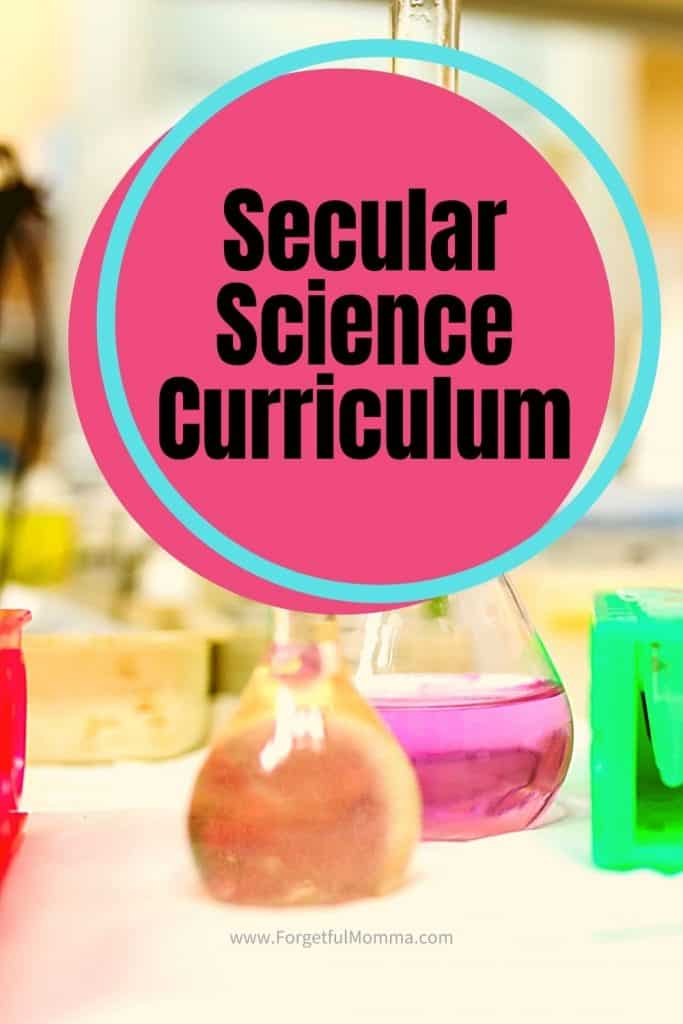Secular science curriculum is not easy to find. It goes back to the fact that the majority of homeschoolers are homeschooling from a religious point of view. It is changing and with that change come more secular options for us.

Choosing a Secular Science Curriculum
This post contains affiliate links, see my disclosure policy for more information.
This is one subject that I will not, I will not settle on. There is a lot of curriculum out there that I like and have just skipped over the religious aspects, but science isn’t one of them. We are learning about evolution and science, not creation.
A secular curriculum only discusses religious beliefs from an anthropological perspective. It is not faith-neutral (this becomes important, especially when discussing science and history curricula). It does not posit biblical/religious beliefs as historical facts.
How to Choose A Curriculum
- secular / religious view
- digital or print
- independent learning or guided learning
- common core or non-common core
- availability – these are available in Canada
- is hands-on learning included?
You also need to decide what you want to be taught in your homeschool. I teach my kids about evolution and scientific thinking.
Secular Science Programs
Building Foundations of Scientific Understanding (BFSU)
BFSU is for homeschoolers to deliver first-rate science education to K-8 students and older beginning science learners. Vol. I (here) is for grades K-2 and older beginning science learners.
Classic Science Curriculum, Mr. Q
High school science includes (free) Life Science, Earth Science, Chemistry, Physical Science, Advanced Chemistry, Advanced Biology, Advanced Earth Science, and Advanced Physical Science.
Real Science Odyssey
Each of their science courses spans a range of grade levels, the content can be modified based on your student’s academic needs.
The Story of Science by Joy Hakim
A set of texts where narrative storytelling meets secular science, these are great for high school science and language arts studies.
Fascinating Education
Students get to understand science concepts instead of just memorizing them. Using images and narration to explain difficult concepts. You can find our review here.
Doctor Robin’s School
Dr. Robin created this curriculum after she realized, as a homeschool mom herself, that there was no biology curriculum out there that didn’t require the parent to learn the curriculum material first before teaching it. You can find our review here.
Science books for your homeschool:
Teaching Evolution
Hands-on Science Experiments
There is also the option of adding in great, hands-on learning science experiments. These are favorites in our homeschool. I will turn my kitchen upside down by doing a science experiment with my kids. I have been doing them with my kids long before we homeschooled, long ago, like even when they were 1 or 2 years old.
Science experiments are a great way to get all your kids involved in the learning and to teach multiple ages at once.
